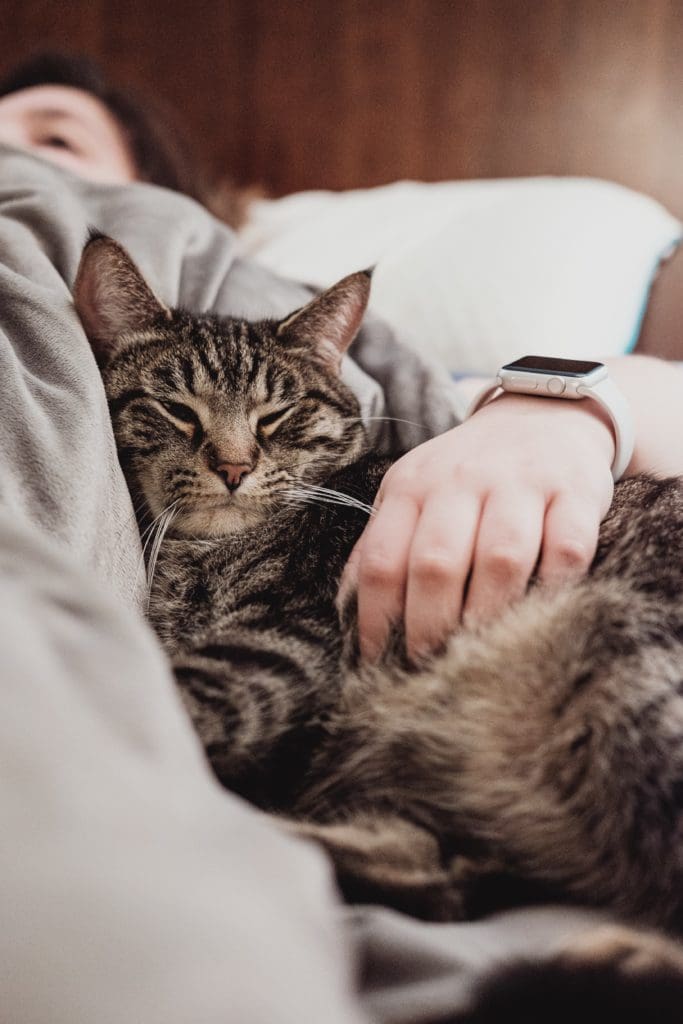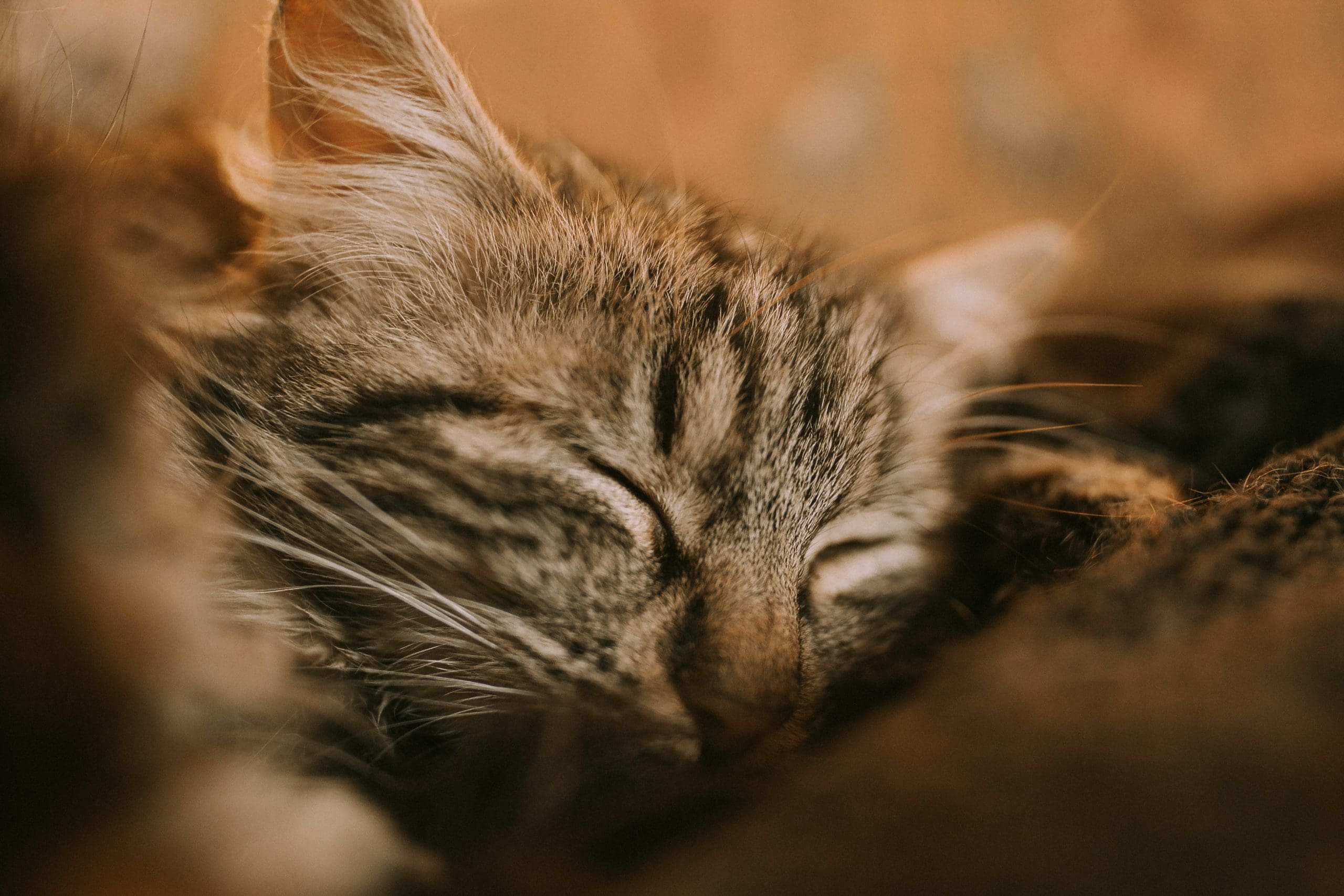
For cat parents, it’s among the most beautiful sounds in the world. Whether your kitty is lounging in your lap or nudging you awake for a snuggle, purring is generally considered to be a sign that your furbaby is happy and relaxed.
Though pure joy is certainly one possible explanation for those low, rhythmic vocalizations, purrs convey a wider range of feline emotions than you may expect. Just like humans may laugh or cry for various reasons, purring can be an outward expression of your cat’s more nuanced inner state. By considering the context of those peaceful-seeming sounds, we can better understand our kitties’ needs.
Ideally, your cat’s earliest memories are of being groomed, fed, and nuzzled by mom. Purring plays an important role in mother-kitten bonding, and adult cats retain the association of those vocalizations with feelings of warmth and safety. Like us, cats draw on the coping mechanisms they learned when they were young as a way to cope with anxiety.
In much the same way that we might find solace under a weighted blanket after a hard day, purrs may be a sign that your cat is trying to manage distress.
Just like kittens use purrs to communicate their needs to their mother, our cats make similar sounds to let their human parents know they want food, attention, or affection. Purrs that are accompanied by demands tend to sound distinct from those that express simple contentment, and they are often accompanied by a higher-pitched cry. Interestingly, even people who don’t own cats can distinguish between ambient purring and the vocalizations of a cat asking for food.
Cats are notoriously complex creatures, so pet parents shouldn’t assume that purrs are always a sign of happiness. Fortunately, being aware that your kitty’s vocalizations aren’t so straightforward can help you determine their true meaning. The bond you have with your cat and your insight into their temperament and body language is your most powerful tool for decoding purrs.
If your cat is recovering from surgery or injury, you may notice some purring that feels out of place. Those soothing vocalizations may be very comforting to your under-the-weather kitty, and they also may play a role in healing. Experts believe the low-frequency vibrations of a cat’s purr help strengthen bones and repair tendons by encouraging tissues to regenerate in response to pressure.
If your cat is not recovering from a known injury, and you notice excessive purring accompanied by lethargy or troubling behavior changes, make an appointment with your vet to investigate.

At 26 Hertz, the low frequency of a cat’s purr matches the frequency used in vibrational therapies for humans. These treatments have been shown to help heal injuries and increase bone density, so it stands to reason that letting your kitty snooze away on your lap may offer some of the same benefits.
Even if the jury is still out on purr therapy, it’s no accident that we find those vocalizations to be so incredibly soothing. As if you needed another reason to spend time cuddling your cat, purrs offer stress relief, reduce blood pressure, and can even lower your risk of a heart attack by 40%.